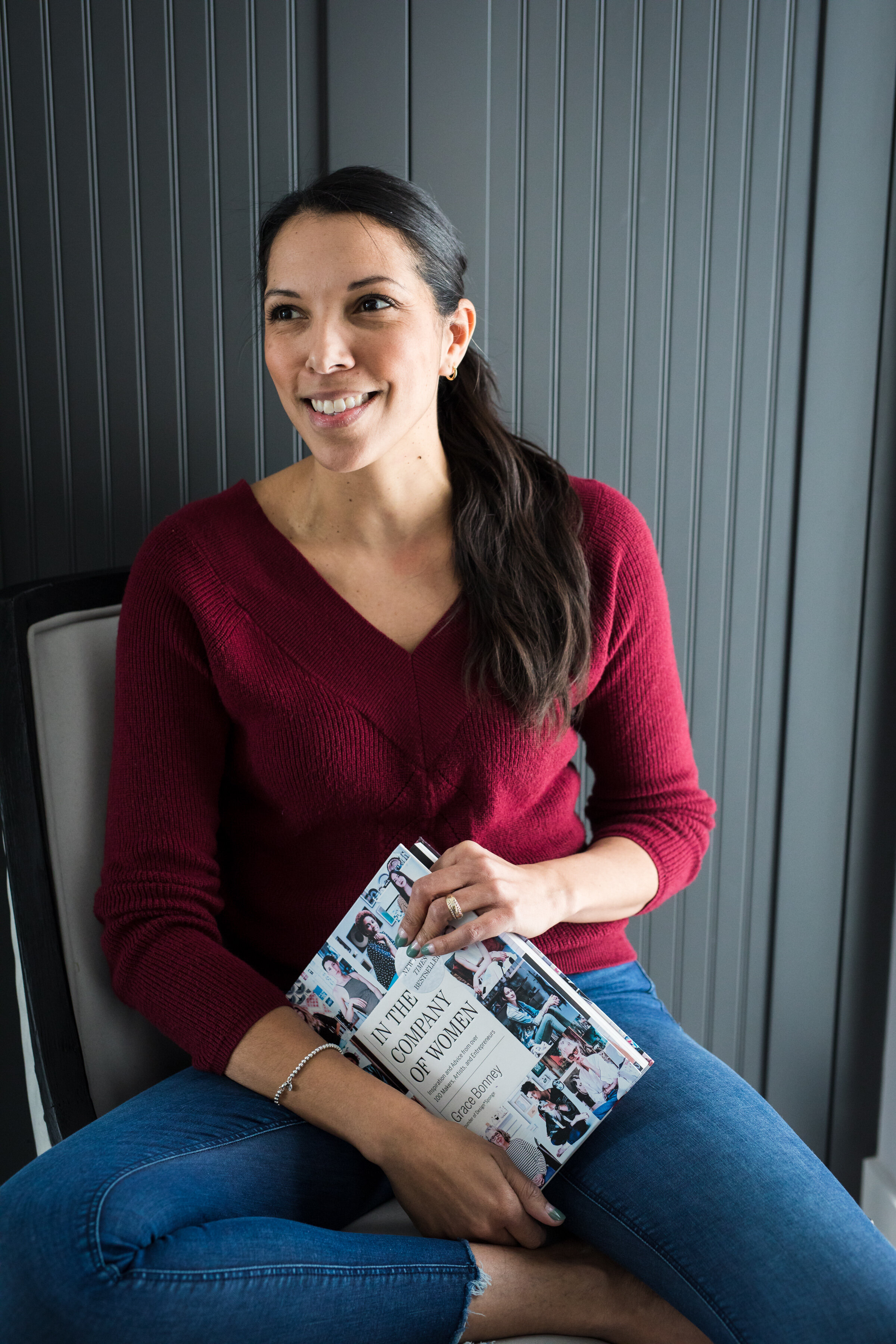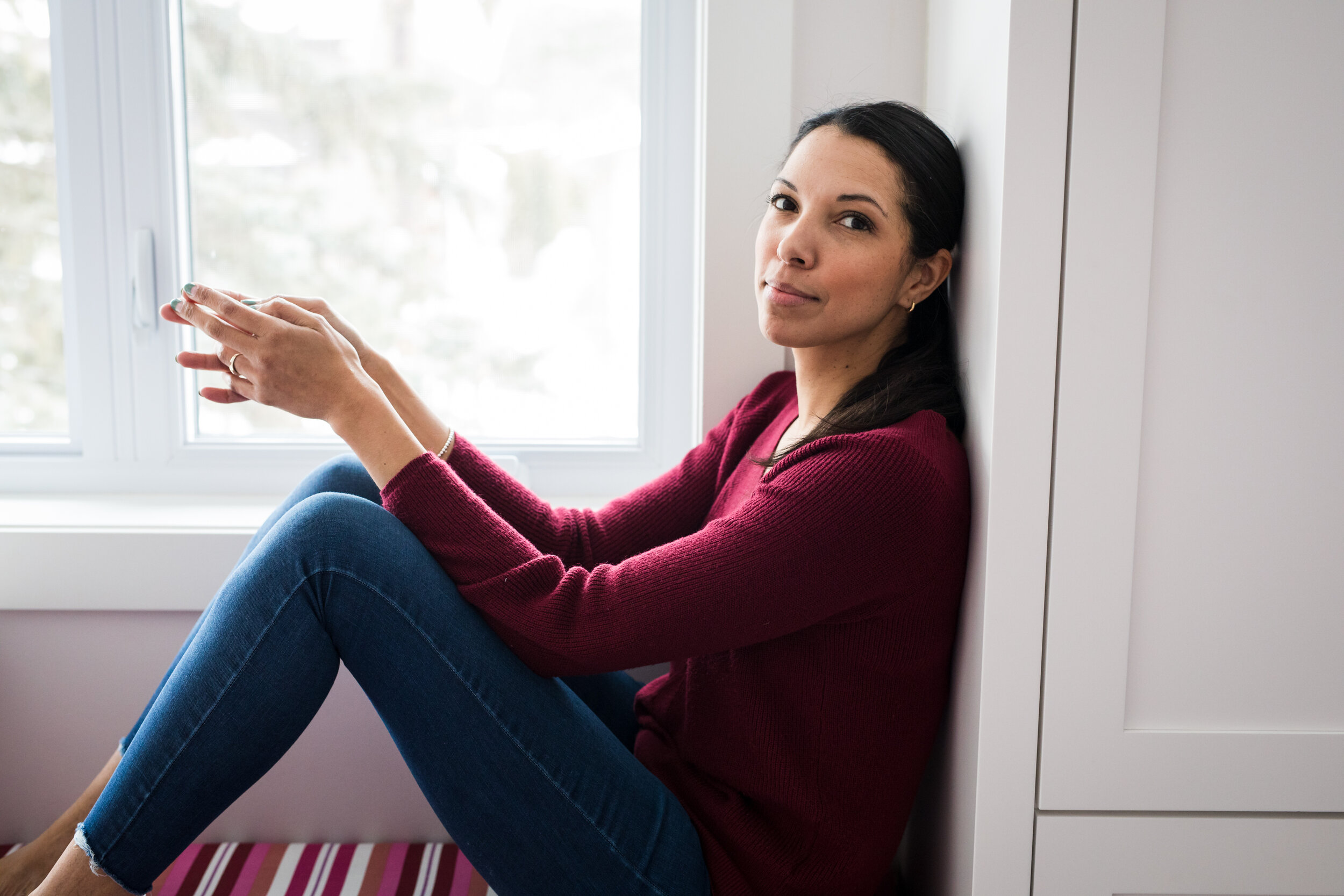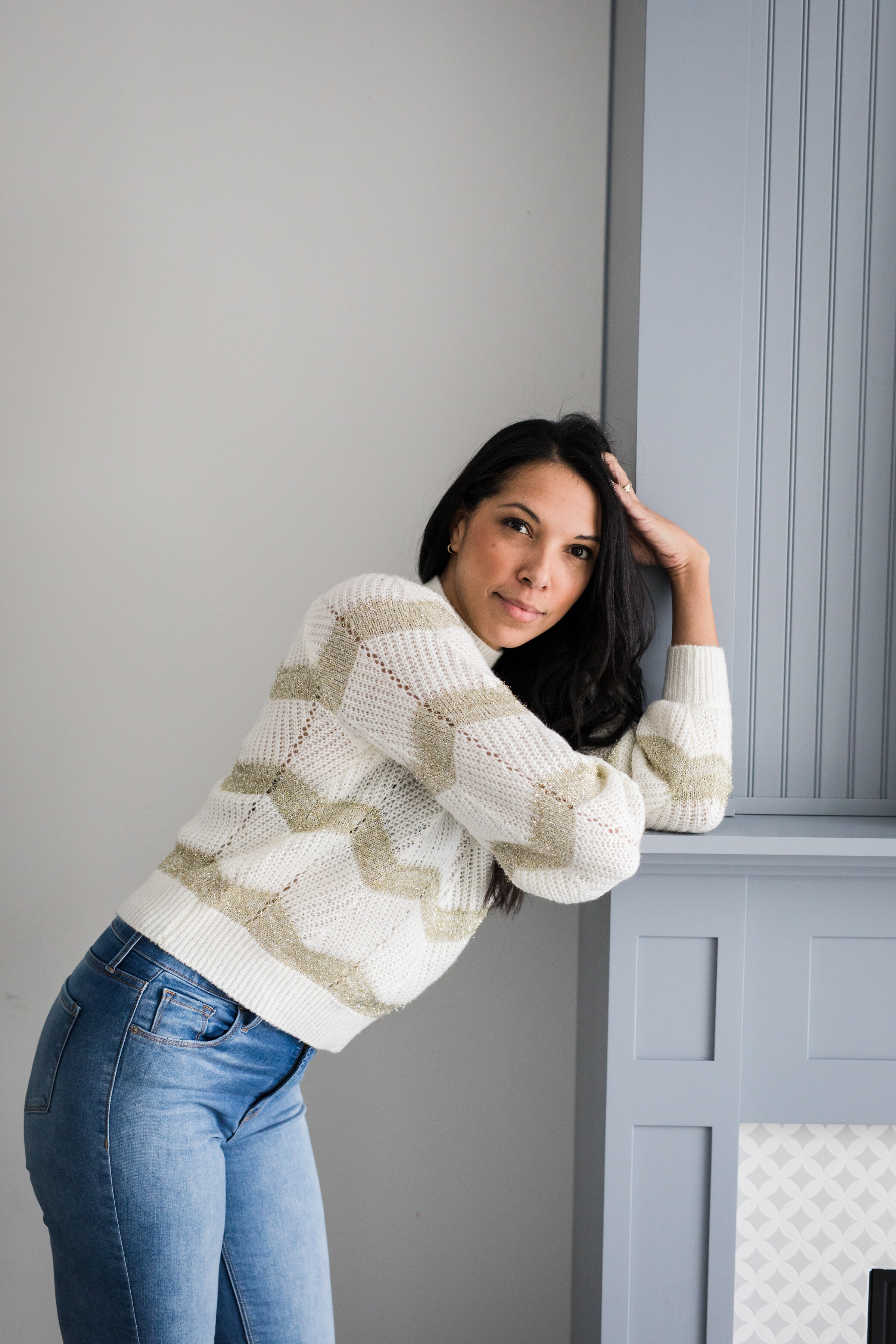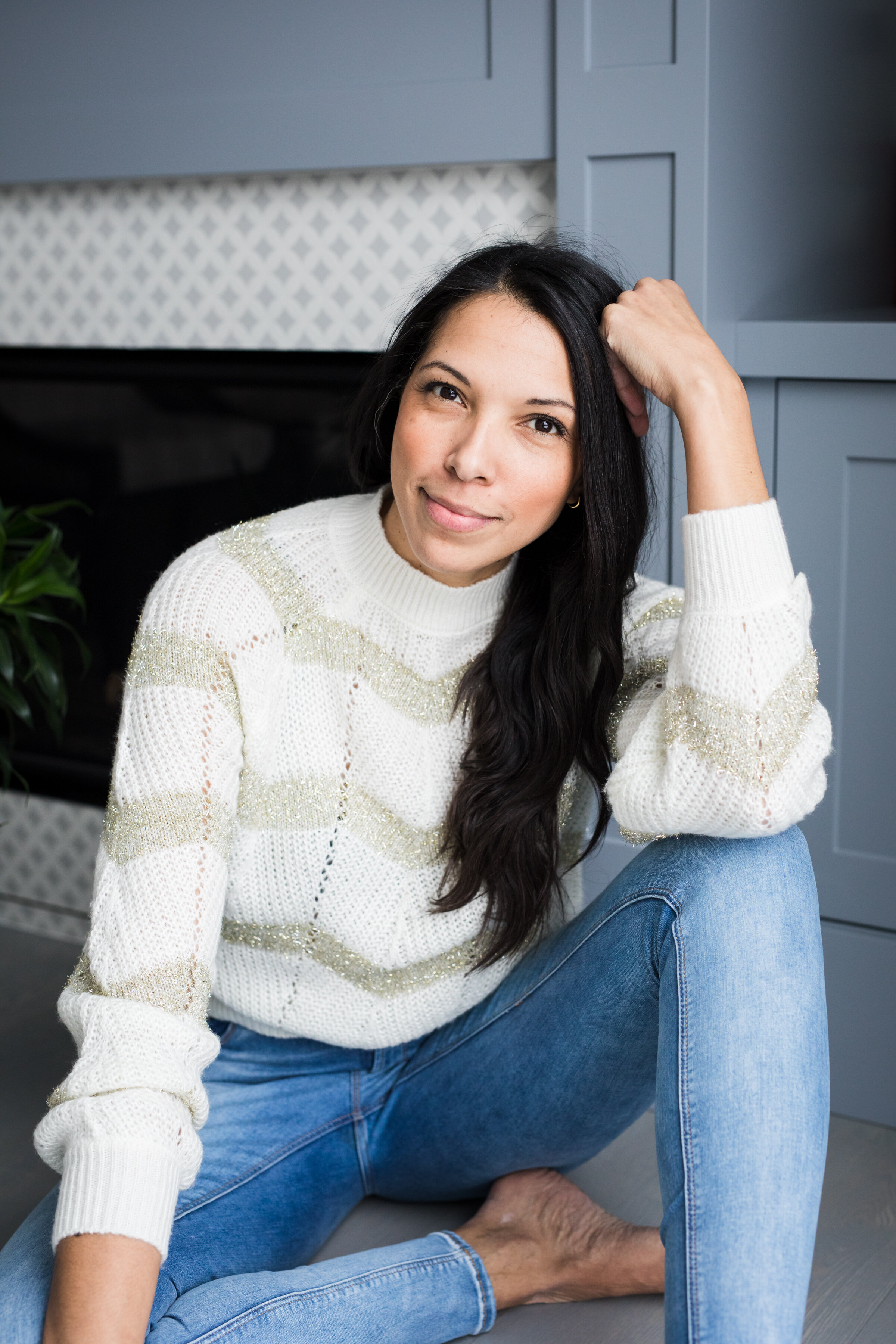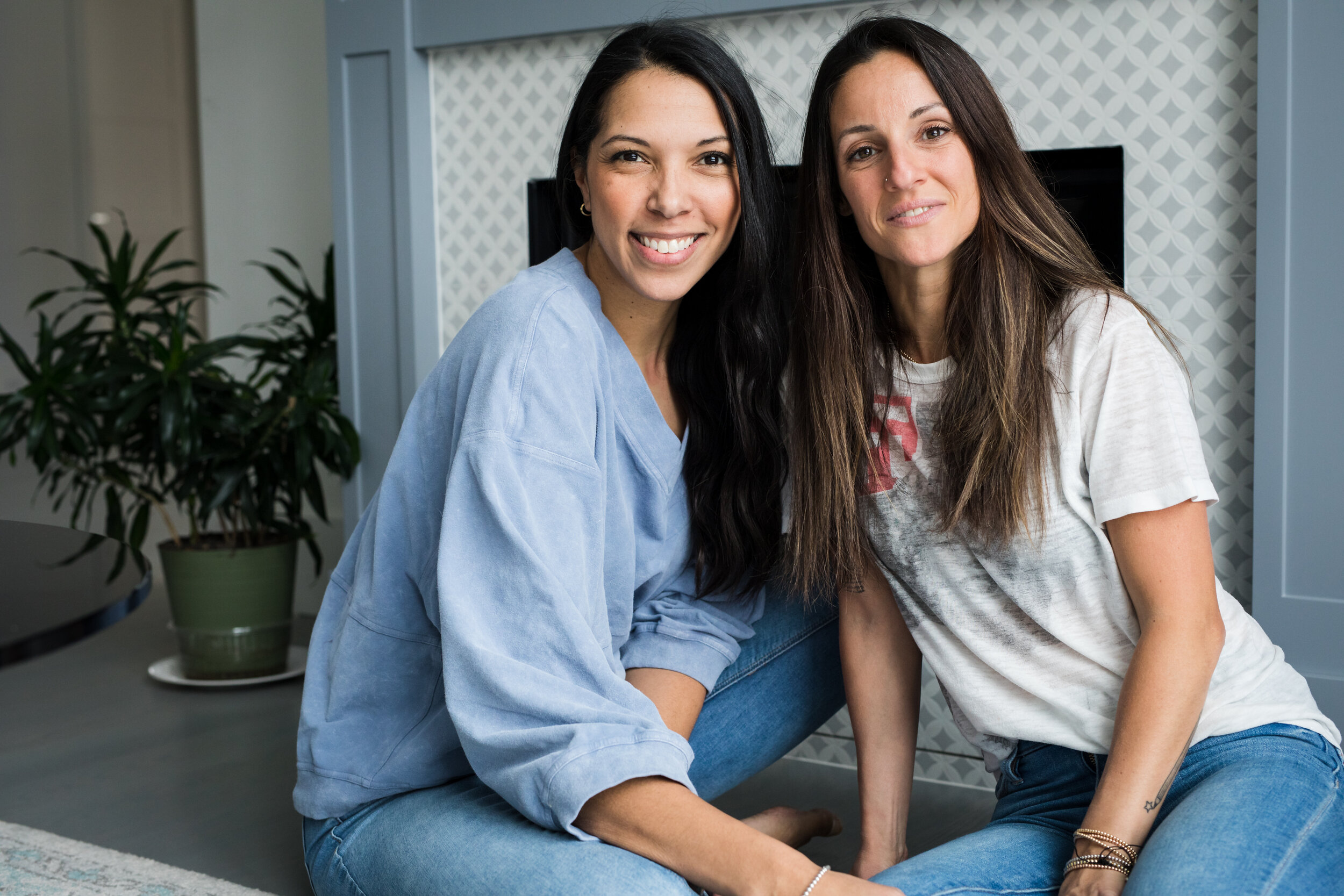Speaking Her Truth
Written by Alecs Kakon
Photos by Jen Fellegi
When there is a vast dissonance between the internal world and the external being, there is no mirror clear enough to show you what you truly look like, not from the inside out at least. If left to the thoughts and beliefs of others, I’d be in a constant state of displacement, a perpetual feeling of loss. Try as I might to be transparent and show my true self, my identity would be fuddled and convoluted with what people had projected onto me. One thing I heard consistently throughout my lifetime, still today, is that I had a privileged life and that I wouldn’t understand what true hardship was. So, my public persona wrestled with being misunderstood for only a moment before I slipped into becoming exactly what people expected. In public, I was extroverted, loud, wild and fun. I always knew these were merely symptoms of my inner alienation, but I adopted this outer shell, and somewhere along the way, I became her. I was a ball of confusion and I couldn’t say for certain what was truly me and what was this avatar I created, this person I performed. Eventually, it all caught up… it always does. There was a constant feeling of being out of synch. Every misstep resulted in broken bones; every mirror, my shattered self. Resetting and heading back to ground zero, the journey has been long, but I found the path that led to my inner child. I visited with the little girl that was and I sat in the dark with her, I played out her sadness. I confronted my fears and in my quiet reflections, I learned that no one can claim jurisdiction over me, because I control what’s inside. I decide what I think and how I feel and who I want to be. In these incantations, I have found a true sense of freedom and I have become the woman I always longed to become. Sitting down with Joëlle, I learned that what happens in our lives are experiences not meaning-makers (this thought process immediately led me revisit the psychological term gestalt), speaking your truth will set you on your path, and that ultimately, happiness is a process worth working at.
Living a simple life with her mother, Joëlle was 3 years old when her father was released from jail and entered her life. Although she was too young to understand the immensity of the real story, it wasn’t long after his reentry that her mother and her were in physical danger and had to flee their home. Living a life akin to witness protection, Joëlle and her mother found a new home-base, and before long, Joëlle had a new step-father in an obscure town out of harm’s way. Growing up, Joëlle and her mom had a bond based on truth-telling and camaraderie. It was an unconventional mother-daughter relationship, but one she enjoyed, and so she never questioned that pieces of the story might have been conveniently left out. “I didn’t know much about my father or why we were in hiding, but I knew we lived a life filled with secrets and that we couldn’t say much to anyone about anything,” Joëlle remembers. “I also felt that I had an enormous responsibility to my mother to keep her happy and smiling.”
It took over two decades for the truth to begin leaking out. Little clues would arise in the form of an estranged uncle at 19 years old; a year later, she would meet her father for the first time visiting him in prison; and, finally, at around 25, Joëlle was confronted with the story of her life. “Piecing it all together, I learned that my father was violent with my mother, but it was only when he laid a hand on me, that my mother left him. My mother saved us from impending violence. I was the source of my mother’s courage to leave, and all of a sudden, everything made sense.” Smothered in her love, Joëlle began unpacking the true nature of her toxic relationship with her mother. “I always thought I was this complicated person, when in fact, I was quite textbook. My mother was loving but I understand now that it was a trauma-bond. So even though I had all this love, it was a possessive and self-absorbed kind of love, serving the good of my mother most exclusively.” Holding herself together by the grit of her teeth, Joëlle continued to be a well of happiness for those around her, but deep down, a depression was brewing. The confusion was only further exacerbated by the lack of empathy anyone around her offered. “People would often tell me that I had it all, but if I had it all, why did it feel like this inside?” The tension of feeling misunderstood was rooted in the dissonance a life of secrets creates. Truth becomes opaque, blurring your capacity to know and be yourself fully in the world. As more truths began to surface, Joëlle’s mirror got less foggy.
As a repeat offender, Joëlle’s father was in and out of jail and therefore, in and out of her life. Her step-father, a stable father-figure in her life, divorced her mother and decided to join a cult on her 16th birthday, and so Joëlle’s family life had once again taken a turn. She was merely 17 when she decided to leave home and move to Montreal on her own. “I always had this feeling that my real life was happening somewhere else, anywhere other than where I was, and that if I went to that place, I could be my true self,” Joëlle explains. “I just always felt out of place. Growing up, this visibly coloured kid, I looked different than everyone in my town, even my family. I was bullied, I was called dirty, and I never felt like I was good enough. I fell in love with so many guys and no one ever loved me back, not the way I loved them.” Something was missing inside of her, a deep hole that she felt could be filled if she had had her father in her life.
In her 20s, her father was put in a hospital undergoing psychic evaluation. Unlike her visits to the prison, a hospital visit meant she would now be able to physically touch her father for the first time. “I remember the first time he hugged me. I had yearned for this moment, this protection, this hug, and then he hugged me and I thought, ‘I never want this man to touch me again. It just made me feel so sad and vulnerable. From then on I couldn’t visit my father anymore.” The pressure of being there for her father when she hadn’t come to grips with the impact their relationship had had on her, was beginning to weigh on her so much that she was bursting from within. “He abandoned me over and over, and I just couldn’t forgive him.” Abandonment had become a theme Joëlle was becoming all too familiar with as she started to puzzle together her life story. Her father, her step-dad, even her mother were all sites of displacement, but as Joëlle continued to grow, she become empowered with the knowledge that her experiences don’t define her, she has control over her narrative. With a tremendous amount of introspection and soul searching, Joëlle has cultivated a world replete with meaningful friendships, safe spaces, and an authentic sense of happiness. “It’s taken me so long to be happy and find friends and real love, I’m going to protect it with everything I have no matter what.” Her precious happiness is tow, Joëlle’s laugh is fiercer than ever, because it truly bellows with joy.
I don’t believe everything happens for a reason. That is faith’s way of bargaining with or intellectualizing our past to make it more bearable. Some events are thrust upon us, and because we are strong enough, we can make sense of it all. We are storytellers, that’s how we make our past more palatable. We write our story, and if we follow the constellation of past to present, we have the ability to choose what we keep and what we discard, what matters and what can be thrown away. But before we do that, we need to stand in our truth, own it, and make our minds and bodies a safe place to live. With a fervent commitment to facing reality, Joëlle, along with co-founder Desiree, created Les Lilas Society, a safe and brave space to explore our stories and share them with the world. Through the experience, she has narrowed the lacuna between what she feels inside and what she shows the world, finally becoming one Joëlle. “I always felt special, but I didn’t understand why no one else could see that in me. I was stuck in the dark, because I hadn’t turned on my own light.”


